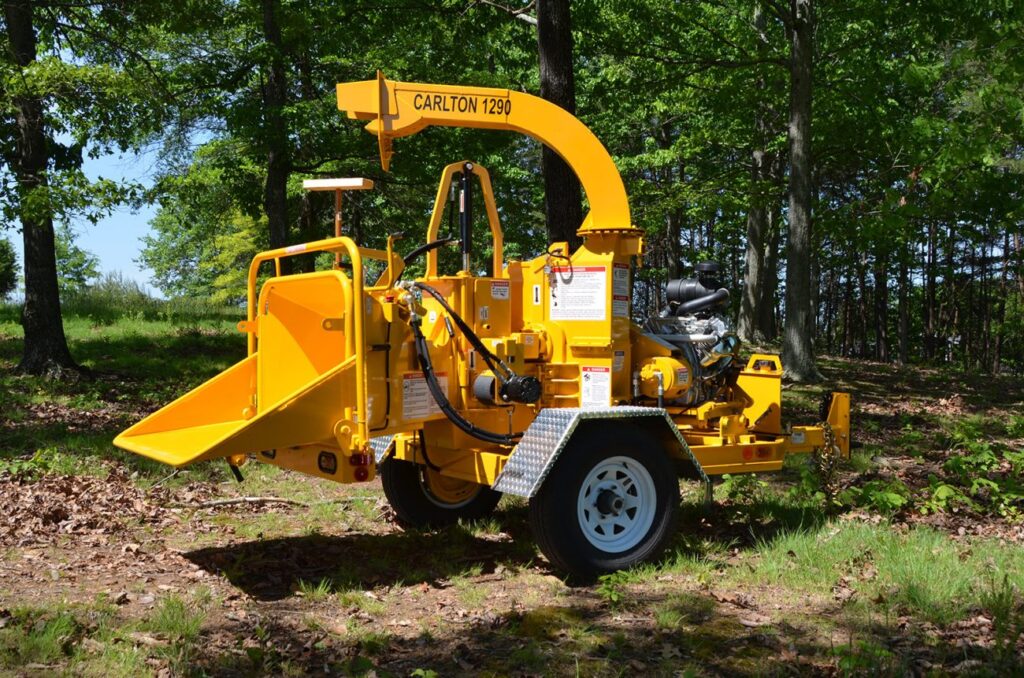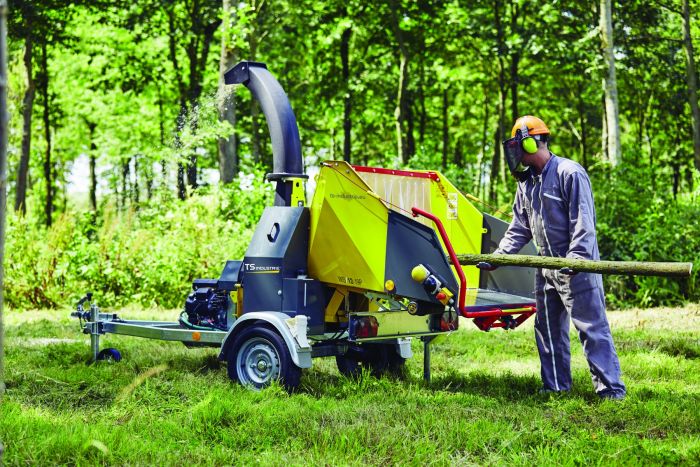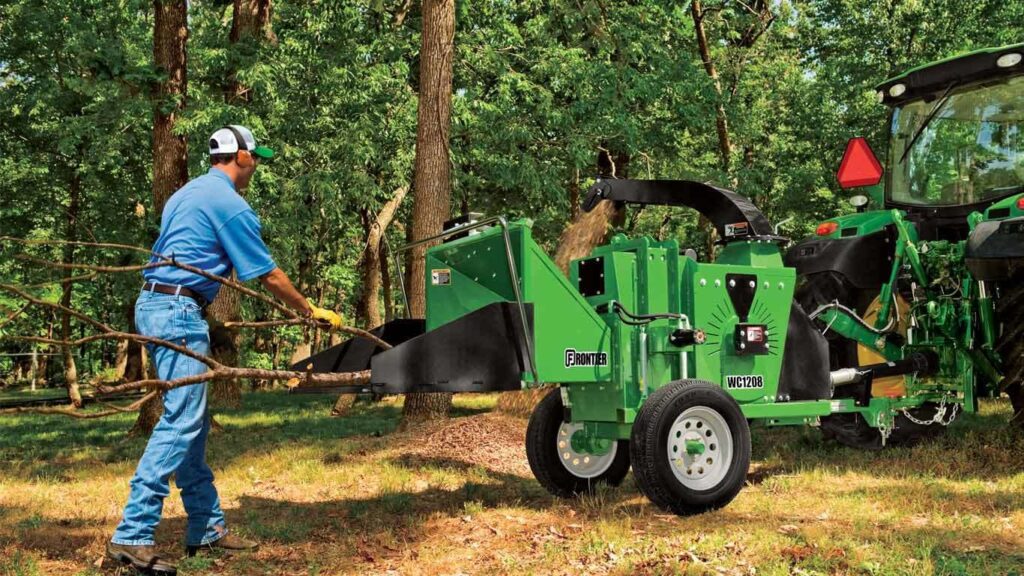If you have a large landscaping project or need to clear land with heavy brush and tree debris, finding the right equipment can make the process much easier and more efficient. Choosing to rent industrial wood chipperr provides a powerful solution for breaking down large branches, logs, and dense brush quickly. Industrial wood chippers are heavy-duty machines that turn cumbersome piles of wood into manageable chips, making them ideal for various projects, from landscaping to forestry management.
In this article, we’ll explore everything you need to know about renting an industrial wood chipper: what to consider, the benefits, and how to ensure you’re selecting the right wood chipper for your needs.
Why Rent an Industrial Wood Chipper?
- Cost-Effective Solution
- Purchasing an industrial wood chipper can be a major investment. For those who don’t need a wood chipper year-round, it makes sense to rent an industrial wood chipper instead of buying one. This allows you to pay only for the time you use the machine, without incurring long-term maintenance costs.
- High-Performance for Large-Scale Projects
- Industrial wood chippers are built for heavy-duty tasks, making them perfect for large-scale projects where regular residential-grade chippers would not be powerful enough. When you rent an industrial wood chipper, you’re equipping yourself with a tool designed to handle substantial debris quickly.
- Flexible Rental Options
- Most rental companies offer daily, weekly, or monthly rental options, so you can choose the rental period that best fits your project timeline. This flexibility allows you to work efficiently without rushing or worrying about returning equipment prematurely.
Read also: rent industrial wood chipper
What to Consider When You Rent an Industrial Wood Chipper
1. Size and Capacity
- Industrial wood chippers come in various sizes and capacities, typically based on the diameter of the wood they can handle. Before you rent an industrial wood chipper, estimate the size of the branches, logs, and brush in your project to choose a chipper that can manage the volume. Standard industrial chippers can handle materials between 6 to 12 inches in diameter, though larger models are also available.
2. Power Source
- Industrial wood chippers are available in both gas and diesel engine options. Diesel-powered chippers are often favored for heavy-duty applications because of their reliability and efficiency. However, if your project requires a more compact machine for tighter spaces, a gas-powered chipper might be the better choice. When deciding to rent an industrial wood chipper, consider the accessibility to fuel types and the scale of power your project demands.
3. Mobility and Towing Requirements
- Industrial wood chippers are typically mounted on trailers for easy transportation. Ensure your vehicle is compatible with the towing capacity of the wood chipper you choose. If you’ll be working on a property with varying terrain, verify that the machine’s wheels or tracks are suitable for your project location.
4. Safety Features
- Safety is paramount when operating heavy-duty machinery like an industrial wood chipper. Look for models with safety features such as emergency shut-off switches, anti-kickback mechanisms, and lock-in devices. Some rental providers also offer training or demonstration sessions, ensuring you feel confident handling the equipment.

Benefits of Renting an Industrial Wood Chipper
1. Efficiency and Speed
- One of the most significant benefits when you rent an industrial wood chipper is the efficiency it brings to large-scale jobs. This equipment can chip large volumes of wood in minutes, which would take hours to cut or haul away otherwise.
2. Versatility
- Industrial wood chippers are versatile tools that can handle all types of wood, including branches, tree trunks, and overgrown brush. This versatility makes them useful for various applications, from tree trimming projects to land clearing and landscaping.
3. Environmental Benefits
- Renting an industrial wood chipper allows you to repurpose wood waste. The wood chips produced can be used as mulch, compost, or even biomass fuel. By choosing to rent an industrial wood chipper, you’re also supporting environmentally friendly practices by turning waste into valuable materials.
Read also: rent industrial wood chipper
Steps to Rent an Industrial Wood Chipper
1. Assess Your Project Needs
- Before you rent, understand the size and type of wood debris you’ll be handling. Determine the rental period that best suits your timeline and make sure you’re aware of the total budget for renting an industrial wood chipper.
2. Contact a Reputable Rental Company
- Look for rental companies with a track record of high-quality equipment and good customer service. A reliable provider should be able to recommend the right wood chipper based on the details of your project. They should also provide clear information on rental rates, terms, and additional support options.
3. Inspect the Equipment
- Before committing, inspect the wood chipper for any visible issues or damage, and confirm it has all necessary safety features. Ensure you receive any required training or instructions, as well as contact information in case of questions during your rental period.
4. Follow Safety Guidelines
- Safety is essential when operating industrial machinery. Always wear protective gear, including gloves, eye protection, and ear protection. Keep a safe distance from the feeding chute and never attempt to chip materials that exceed the machine’s capacity.

Frequently Asked Questions (FAQs)
Q: What size of wood chipper should I rent for a land-clearing project?
A: For most land-clearing projects, an industrial wood chipper with a capacity to handle 9- to 12-inch diameter logs is sufficient. However, if your project involves larger trees, look for heavy-duty models that can handle up to 18 inches.
Q: How much does it cost to rent an industrial wood chipper?
A: Rental prices vary depending on the model, location, and rental period. On average, daily rates can range from $200 to $500. Weekly or monthly rentals may offer discounts for extended use.
Q: Can I use an industrial wood chipper for small branches and twigs?
A: Yes, but industrial wood chippers are designed for heavy-duty tasks, so if your project mainly involves small branches and brush, a smaller residential model might be more practical and cost-effective.
Q: Do I need a special license to operate an industrial wood chipper?
A: Typically, no special license is needed, but it’s essential to follow safety guidelines and, if possible, receive operational training from the rental provider.
Q: Is it better to rent or buy an industrial wood chipper?
A: Renting is more practical for occasional projects, while buying is worthwhile for frequent use. Renting provides flexibility and cost savings for one-time or seasonal projects.
Conclusion
Renting an industrial wood chipper can be a cost-effective solution for businesses and individuals handling large-scale wood chipping or land-clearing projects. It offers flexibility and access to high-performance equipment without the upfront investment and maintenance costs associated with ownership. Renting allows users to choose specific models based on project needs, from heavy-duty chippers for forestry and construction sites to mid-sized units suitable for landscaping. Moreover, reputable rental services provide regular maintenance and support, ensuring reliable, safe, and efficient performance. Overall, renting an industrial wood chipper is ideal for those who require powerful equipment on a temporary basis.



